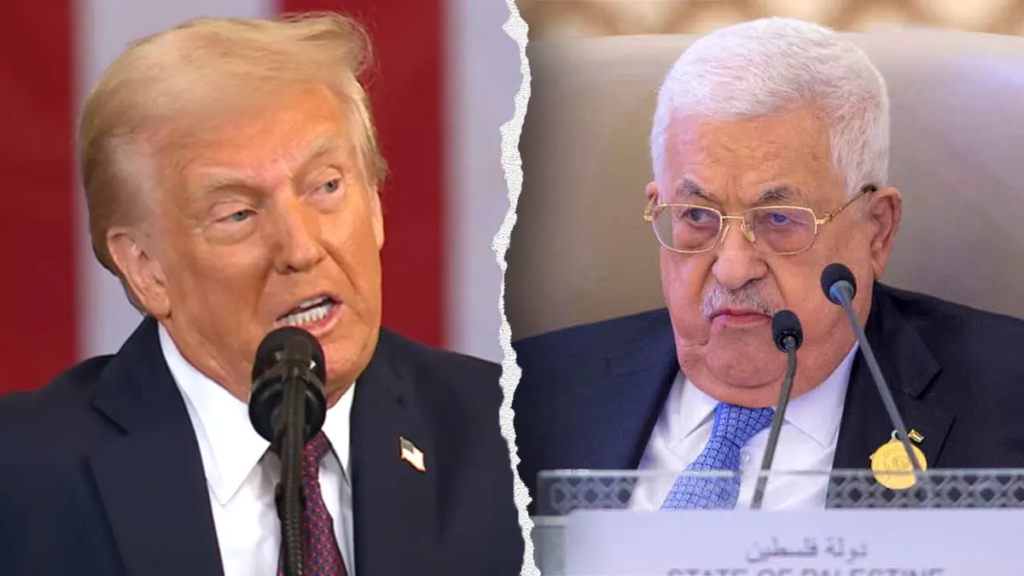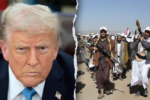In a significant move that signals growing internal pressure, Palestinian Authority President Mahmoud Abbas has publicly demanded that Hamas release all remaining hostages in its custody.
The call, made during a televised address on April 23, 2025, comes amid intensified international scrutiny over the humanitarian crisis unfolding in Gaza and increasing concern over the fate of civilians detained since the escalation of hostilities.
Abbas’s remarks mark one of the most direct condemnations of Hamas by a Palestinian political leader in recent months. “No legitimate cause can justify the continued captivity of innocent civilians,” Abbas said. “We demand their immediate and unconditional release.”
This rare rebuke highlights the widening rift between the Palestinian Authority (PA), based in the West Bank, and Hamas, the Islamist militant group that governs the Gaza Strip and is designated as a terrorist organization by the United States, the European Union, and other countries.
Rising Tensions Between Palestinian Factions
The PA’s relationship with Hamas has long been strained. Although both groups claim to represent the Palestinian people, they are deeply divided on ideology, strategy, and governance. Since Hamas seized control of Gaza in 2007, it has operated independently from the PA and repeatedly clashed with both Israel and its political rivals.
The hostage situation has intensified the internal discord. Following the October 2023 conflict with Israel, during which Hamas took dozens of Israeli and foreign civilians hostage, negotiations for their release have been slow and fraught with complications.
While international mediators, including Qatar and Egypt, have facilitated the release of some hostages, dozens remain unaccounted for. Abbas’s latest statement signals frustration over the stalled process and attempts to reassert the PA’s legitimacy as the voice of Palestinian diplomacy.
International Pressure Mounts on Hamas
The international community has increasingly called on Hamas to release all remaining hostages. The United Nations, human rights organizations, and leaders from the U.S. and EU have condemned the detentions as violations of international law.
In a recent joint statement, the United Nations High Commissioner for Human Rights and the International Committee of the Red Cross emphasized the urgency of resolving the issue through humanitarian channels.
U.S. Secretary of State Antony Blinken reaffirmed American support for hostage families. “The United States stands firmly with the families of those still held in captivity. We continue to press for the safe return of all hostages and hold Hamas accountable for its actions,” Blinken said during a press briefing.
Humanitarian Impact and Calls for Accountability
For families of the hostages, the prolonged silence and uncertainty have been devastating. Civil society groups across Israel and the occupied Palestinian territories have organized vigils and petitions, calling for both sides to prioritize humanitarian concerns over political agendas.
Inside Gaza, conditions continue to deteriorate. The region remains under blockade, and access to clean water, medical care, and electricity is severely limited. Aid agencies have warned that the hostage crisis is exacerbating an already dire humanitarian situation, delaying relief efforts and increasing the suffering of civilians.
Abbas used his speech to draw attention to this broader crisis, urging unity and humanitarianism. “We cannot allow political divisions to deepen the suffering of our people. The release of these hostages is not just a political obligation—it is a moral imperative,” he stated.

What’s Next for the Palestinian Authority and Hamas?
The Palestinian Authority’s renewed push for the release of hostages may shift the dynamics of internal Palestinian politics. Some analysts believe Abbas’s public stance is aimed at regaining credibility both at home and abroad, as the PA faces declining approval ratings and increasing skepticism about its effectiveness.
At the same time, Hamas has shown no immediate indication of complying with the demand. Leaders within the group have stated that the hostages are being used as leverage in broader negotiations over prisoner swaps and ceasefire terms with Israel.
This raises the question: Can the PA influence Hamas without further dividing Palestinian governance? And will international diplomacy succeed in ending the hostage crisis?
Conclusion: Hostage Release as a Humanitarian and Political Turning Point
President Mahmoud Abbas’s demand for the release of hostages by Hamas marks a pivotal moment in Palestinian politics. It reflects both growing internal dissatisfaction with Hamas’s tactics and an effort by the Palestinian Authority to reclaim leadership on the world stage.
As global pressure intensifies and humanitarian needs become more urgent, the focus remains on Hamas to act decisively and humanely. The fate of the remaining hostages is not only a test of international diplomacy—it is a reflection of the broader struggle for peace, accountability, and unity within the Palestinian territories.
To learn more about the international legal ramifications of hostage-taking, visit Human Rights Watch.
Disclaimer – Our team has carefully fact-checked this article to make sure it’s accurate and free from any misinformation. We’re dedicated to keeping our content honest and reliable for our readers.








